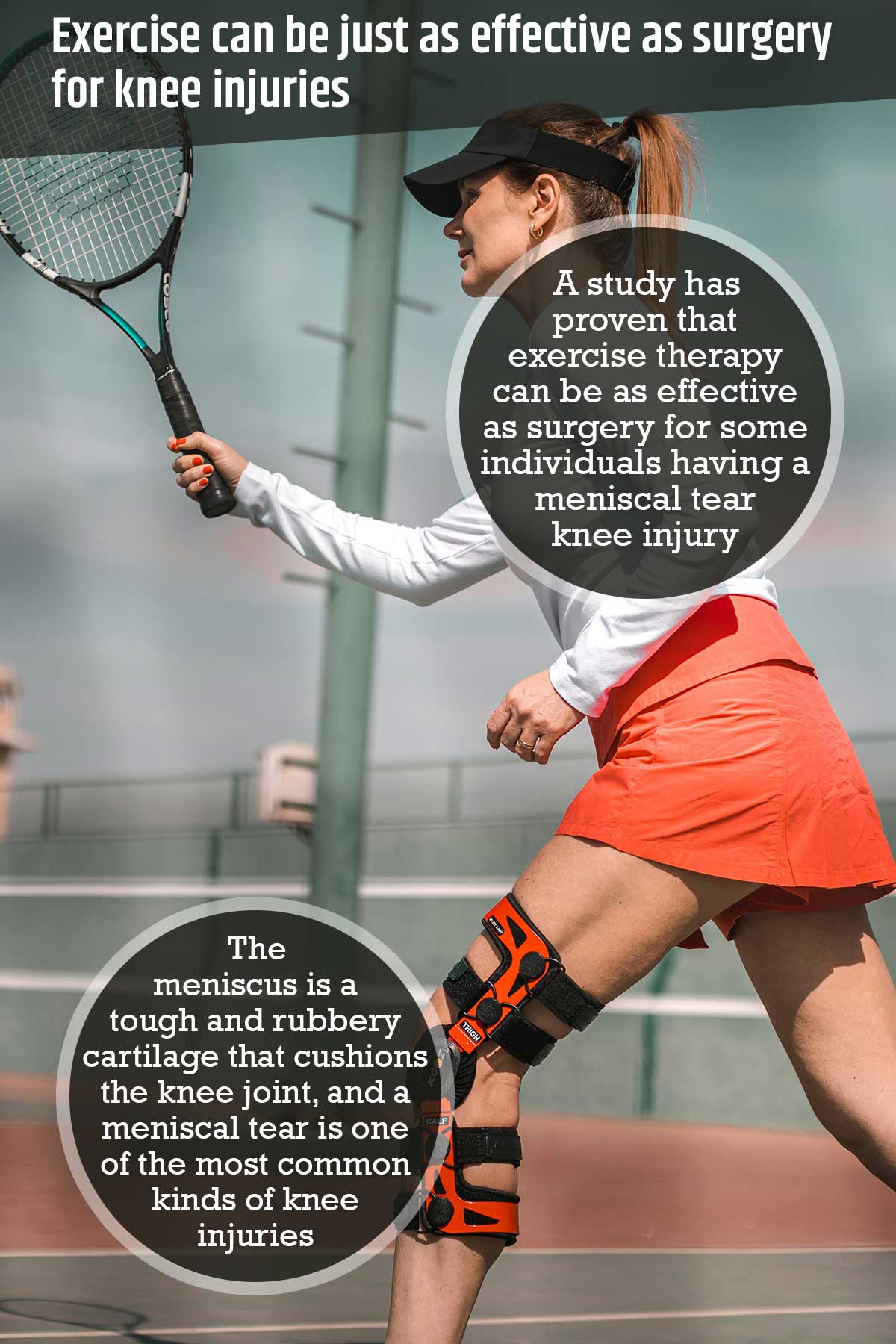Considering surgery for a meniscal tear? A study has proven that exercise therapy can be as effective as surgery for some individuals having a meniscal tear knee injury.1✅ JOURNAL REFERENCE
DOI: 10.1136/bmj.i3740
The meniscus is a tough and rubbery cartilage that cushions the knee joint, and a meniscal tear is one of the most common kinds of knee injuries.
The researchers recommend that exercise therapy ought to be considered in many more cases as an option for treating individuals having this kind of knee injury.
Every year at a cost of a few billion dollars, around 2 million people around the world have knee arthroscopy, which is keyhole surgery that improves movement and alleviates pain. But existing evidence shows that knee surgery provides little benefit for the majority of individuals.
A randomized controlled trial was performed in individuals with degenerative meniscal tears to compare arthroscopic surgery with exercise therapy. 140 middle aged adults with degenerative meniscal tears were identified and confirmed with MRI scans.
Almost all of the participants had no evidence of osteoarthritis. Half of them were given a 2-3 weekly session monitored exercise program for 12 weeks and the other half had arthroscopic surgery and also given simple exercises to carry out at home every day.
Muscle strength of the thigh was assessed at 3 months and knee function was noted at 2 years. There were no clinically relevant differences observed between the 2 groups for outcomes including pain, function in recreation and sport, as well as knee related quality of life. Muscle strength had improved at 3 months in the exercise group.
There were no serious adverse events observed in either group throughout the 2-year follow-up. There was a 19% cross over to surgery from the exercise group in the follow-up period without any additional benefit.
Monitored exercise therapy revealed positive effects over surgery in the improvement of thigh muscle strength.
The results should encourage individuals with degenerative meniscal tear without radiographic evidence of osteoarthritis to think about monitored exercise therapy as a treatment alternative.



